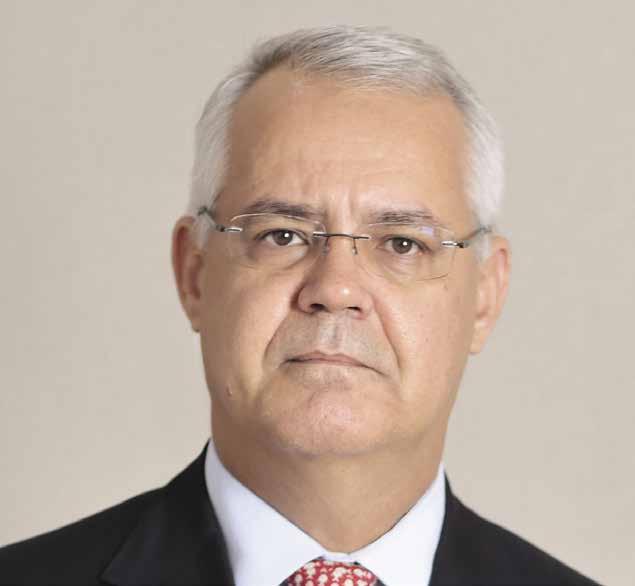OPINIÃO
FILIPE ALVES, DIRECTOR DO JORNAL ECONÓMICO EDITOR OF JORNAL ECONÓMICO
O DESAFIO DE
TRABALHAR MELHOR THE CHALLENGE OF WORKING BETTER
P
ortugal é um dos países europeus onde se trabalha mais horas, mas está entre os menos produtivos. Segundo o Eurostat, os portugueses trabalham em média 39,5 horas por semana, mas o País tem um dos piores índices de produtividade da Europa, ficando à frente apenas de países como a Bulgária, a Roménia ou a Croácia, entre outros. Em contrapartida, os países onde se trabalha menos horas, como a Irlanda ou a Holanda, são os mais produtivos. O caso da Irlanda, que até há poucas décadas era um país do nosso “campeonato”, é paradigmático: os irlandeses trabalham em média 36,5 horas por semana (menos três que em Portugal), mas a sua produtividade é quase três vezes superior à nossa. O que explica este fosso entre a realidade portuguesa e a de países como a Irlanda? A tecnologia? A automatização crescente em várias atividades? Os níveis de qualificações das respetivas populações? A ética de trabalho, a cultura ou a religião*? Diria que a grande diferença é a forma como as empresas estão organizadas. Em Portugal também temos empresas que gerem bem o seu principal ativo, que são as pessoas. Mas a maioria continua a não o fazer. E isto deve-se, a meu ver, à falta de preparação das chefias, à proliferação de maus líderes nas organizações e a certos fenómenos culturais, como o nepotismo e a “cunha”, que existem em todos os países mas que no nosso adquirem proporções mais visíveis, em algumas empresas e sectores de atividade. Já Camões concluía, há mais de 400 anos, que um fraco rei faz fraca a forte gente. Isto continua a ser verdade em muitas organizações no nosso País, quer na administração pública, quer nas empresas. E não haverá Plano de Recuperação e Resiliência nem fundos europeus que nos livrem da sina reservada a quem não resolver estes problemas. Em primeiro lugar, precisamos de incutir e fomentar uma cultura de liderança saudável nas nossas empresas. E este conceito traduz-se numa ideia muito simples: o líder é aquele que serve, não o que se serve. O bom líder lidera pelo exemplo, não exige aos seus subordinados aquilo que ele próprio não cumpre e rege-se por princípios de honestidade, seriedade, transparência e justiça.
12
P
ortugal is one of the European countries with the highest number of hours worked, but it is among the least productive. According to Eurostat, the Portuguese work on average 39.5 hours per week, but the country has one of the worst productivity rates in Europe, second only to countries like Bulgaria, Romania or Croatia, among others. In contrast, countries where people work fewer hours, such as Ireland or the Netherlands, are the most productive. The case of Ireland, a country which until a few decades ago was in the same “league” as Portugal, is paradigmatic: the Irish work on average 36.5 hours per week (three hours less than in Portugal), but their productivity is almost three times higher than ours. What’s the reason behind this gap between the Portuguese reality and that of countries like Ireland? Technology? Increasing automation in several activities? The levels of qualifications of the respective populations? Work ethics, culture or religion*? I would say that the big difference lies in the manner how companies are organised. In Portugal, we also have companies that manage their main asset well, e.g. people. But most fail to do so still. And this is due, in my opinion, to the lack of preparation of leaders, the proliferation of bad leaders in organisations and certain cultural phenomena, such as nepotism and the “pull strings factor”, which is a reality in every country but more visible in Portugal in some companies and sectors of activity. Camões concluded more than 400 years ago that a weak king makes strong people weak. This still holds true in many organizations in our country, both in public administration and in companies. And no Recovery and Resilience Plan or European funds will rescue us from the ill fate if we fail to solve these problems. First, we need to instil and foster a healthy leadership culture in our companies. And this concept translates into a very simple idea: the leader is he who serves, not he who is served. A good leader who leads by example does not demand from his subordinates what he cannot accomplish and is governed by principles of honesty, integrity, transparency and justice. This proves essential (Texto escrito ao abrigo do novo acordo ortográfico)



















